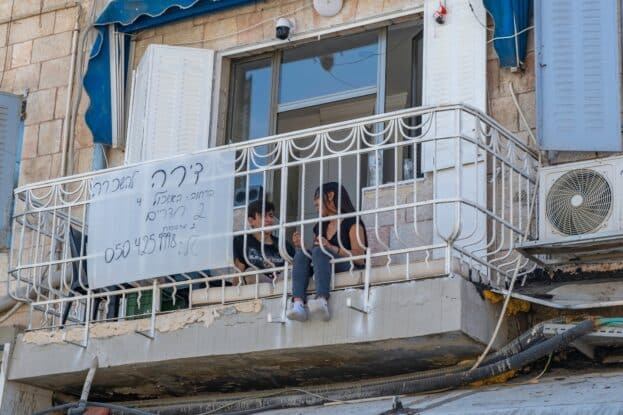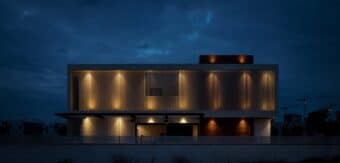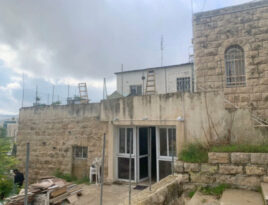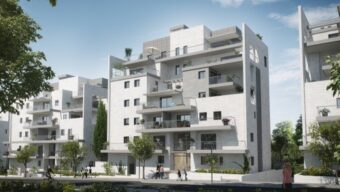Rental prices are up across the country — and in some places, more than expected. New data from the Central Bureau of Statistics shows that the average rent in Israel hit NIS 4,853 in the first quarter of 2025, marking a rise across all apartment sizes. While cities like Herzliya saw a slight dip, prices there remain high. In a surprising twist, Beit Shemesh recorded the sharpest jump for 3-room apartments, with a 9% increase. Meanwhile, renters looking for the lowest prices will still find them in the northern districts.
By Doron Breitman, Nadlan Center
On Thursday, Israel’s Central Bureau of Statistics (CBS) published rental market data for the first quarter of 2025. According to the figures, the average rent in Israel during this period stood at NIS 4,853—a 0.7% rise compared to the previous quarter, and a 4.9% increase year-over-year.
A breakdown by apartment size reveals that 1-2 room apartments rented for an average of NIS 3,706, a 3.8% increase from the same quarter last year. For 2.5–3 room apartments, the average rent was NIS 4,323 (up 4.5%), 3.5–4 room apartments averaged NIS 5,286 (up 3.6%), and 4.5–6 room apartments averaged NIS 6,815 (up 4.9%).
In a city-by-city comparison (limited to cities with over 100,000 residents), Tel Aviv continues to lead in rental costs. A 3 room apartment in the city averages NIS 6,963, up 2.3% from last year. A 4 room apartment in Tel Aviv rents for NIS 8,632 on average—up 3.6%. In Jerusalem, the average rent for a 3 room apartment reached NIS 4,641(up 3.5%), while a 4 room apartment climbed more modestly to NIS 5,921 (up 1.7%).
And what’s happening in Israel’s other two major metropolitan cities, Haifa and Be’er Sheva? In Haifa, the average rent for a 3 room apartment rose 3.9% to NIS 3,019, while in Be’er Sheva it reached NIS 2,716 (up 3%). For 4-room apartments, Haifa’s average was NIS 3,864 (up 2.4%), and Be’er Sheva’s was NIS 3,338 (up 1.2%). These rental prices are less than half the cost of equivalent apartments in Tel Aviv.
For the lowest rental prices in Israel, go north
Among cities with high rent for 3 room apartments, Ramat Gan stands out with an average of NIS 5,281—a 4.7% increase year-over-year. Herzliya also ranks high, though it actually saw a 2.4% decrease, landing at NIS 5,347. On the more affordable end, Ashkelon’s average rent for a 3 room apartment was NIS 3,175 (up 1.7%), while in Hadera it reached NIS 3,273 (up 4.7%). The most dramatic jump, however, was in Beit Shemesh, where rent for a 3 room apartment surged 9% to NIS 3,748.
For 4 room apartments, Ramat Gan again saw high prices with an average of NIS 6,467 (up 3.2%), and Herzliya followed at NIS 6,815 (up 1.7%). Other cities with notable rent prices in Israel include Kfar Saba (NIS 5,782, up 6.2%), Rishon Lezion (NIS 5,334, up 2.4%), and Bat Yam (NIS 5,202, up 4.7%).
When segmented by region, the lowest average rent for a 4 room apartment was in the Northern District, at just NIS 3,372—a 3.8% increase from last year. Haifa District followed with an average of NIS 3,875 (up 4.2%), and the Southern District at NIS 3,847 (up 1.4%). In contrast, rent in the Central District averaged NIS 5,359 for a 4 room apartment (up 3.7%), while in the Tel Aviv District it reached NIS 6,964 (up 2.7%). The average rental price in Jerusalem’s for a 4-room apartment stood at NIS 5,755, an increase of 2.9%.
To summarize, the average rent in Israel continues to climb steadily, with certain cities—like Beit Shemesh—posting surprising spikes that outpace national trends. As demand remains strong, and with home prices still high, rental pressure is likely to persist across the country.

Nadlan Center is Israel’s leading real estate news and knowledge platform in Hebrew, created for industry professionals. Founded by experts in the field, it delivers in-depth, up-to-date coverage on urban renewal, planning and construction, taxation, and housing policy — tailored to the needs of developers, investors, planners, and financiers. In addition to its widely read news content, Nadlan Center hosts major industry events, professional conferences, and training programs that support the growth and development of the Israeli real estate sector.
Learn more: https://www.nadlancenter.co.il







